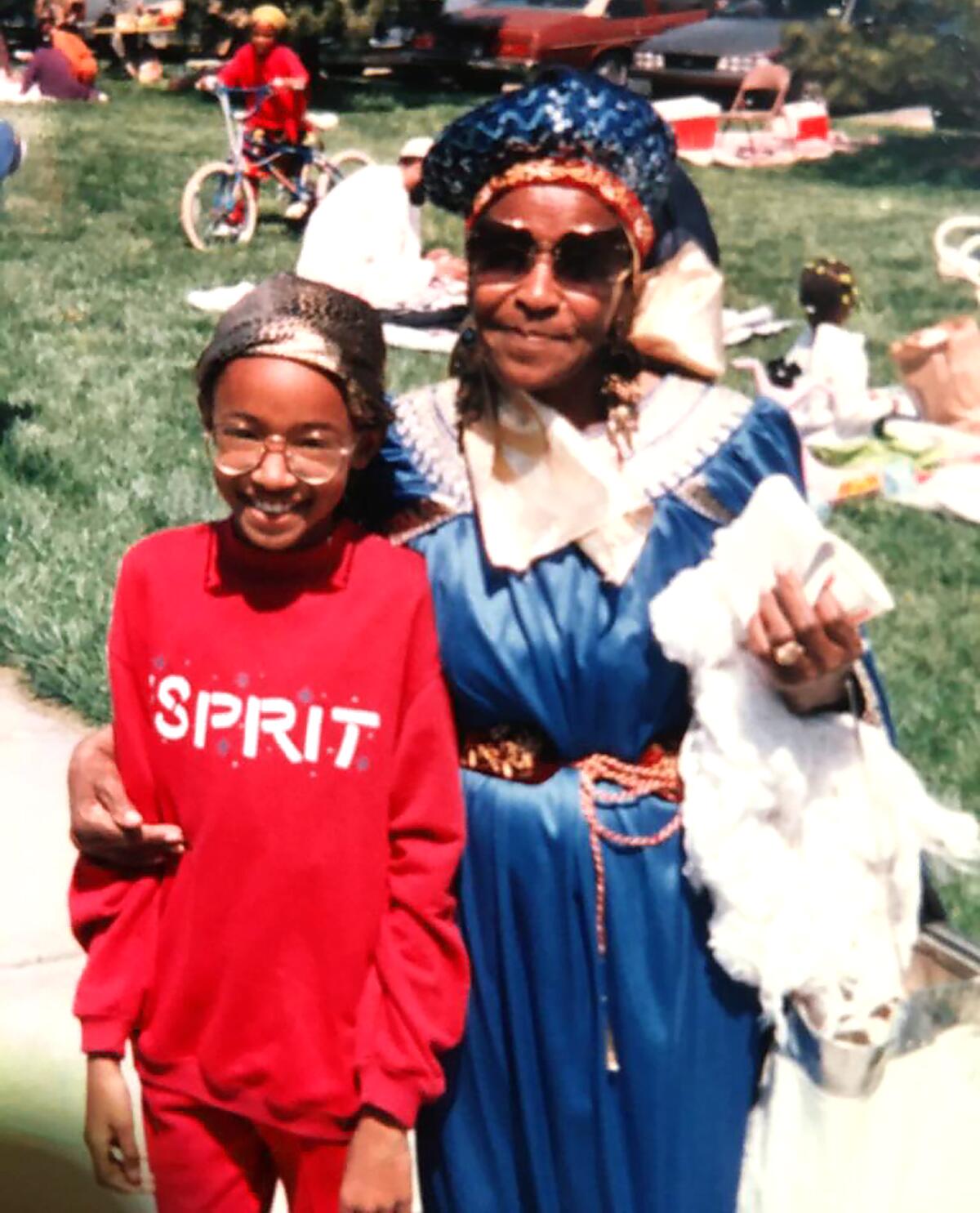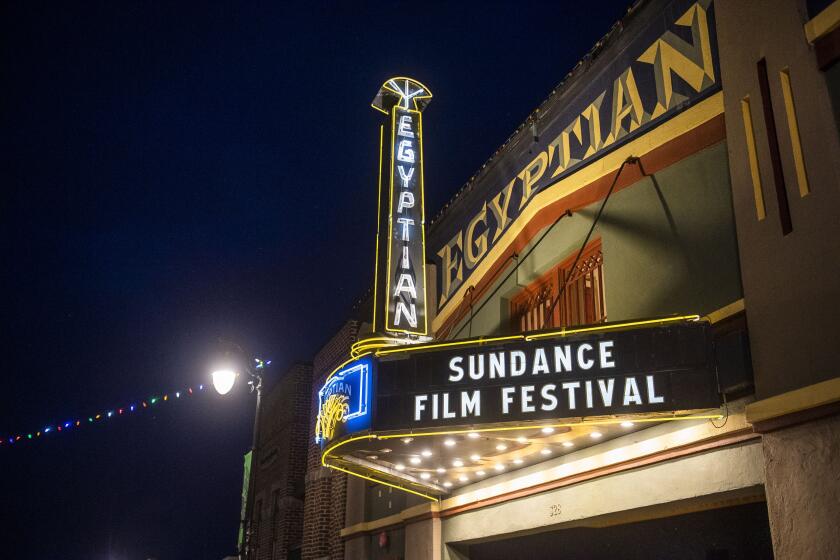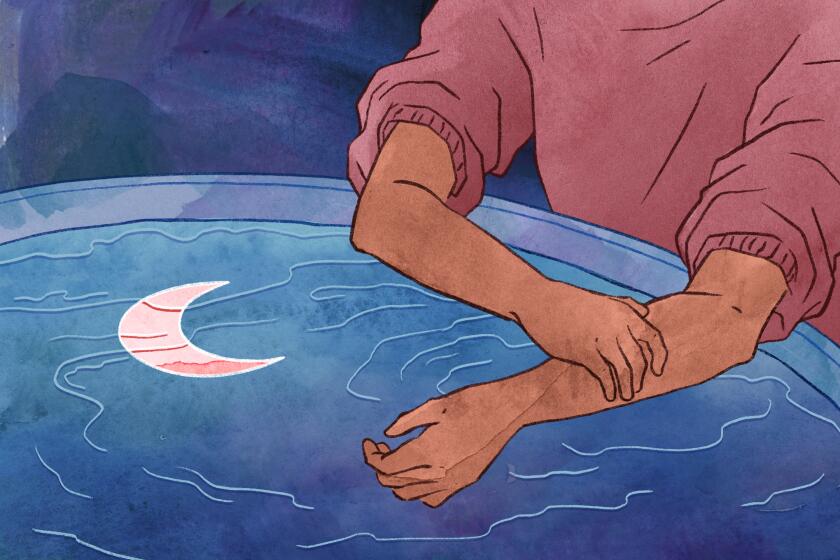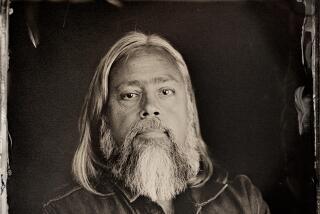Op-Ed: Eid celebrations remind me how important community is — and forging your own path

When I visit my grandmother’s house in Washington D.C., she greets me in her living room with salaams, then shuffles into the back den to retrieve old photo albums — thick and heavy as encyclopedias. It’s a ritual that means more to her than simply sharing old memories, one that I’m convinced sublimates a kind of mourning, rooted in her sense of Islam’s fading legacy in our family. It comes to mind as I anticipate the Eid al-Adha holiday, which Muslims will celebrate this weekend as the hajj pilgrimage ends, knowing I won’t be doing anything particularly religious on that day, knowing that if I told Grandma I’ll be sitting at home writing, it would put her to shame.
She and Grandpa chose the Nation of Islam, and then Sunni orthodoxy, as our family’s religion more than 60 years ago — a decision she still speaks about with great pride. She was more vocal with her feelings in decades past, questioning my cousins and me about what she saw as our deviations from the faith, from our too-tight clothes and dating habits to music choices. But now she plops photo albums into our laps, then watches us the way one hovers to make sure a child ingests the whole tablespoon of cod liver oil. She wants us to remember that we carry inside of us the children in the glossy images, dressed in scarves and kufis, who learned our first prayers in Arabic.
The albums are chocolate brown, forest green and oxblood and smell of resin. On one visit, Grandma told me as soon as I entered the house that she’d found some albums she knew I’d love to see. She put them in my lap and so it began. The first one opened with a crackle of cellophane and there I was, standing outside on a sunny day, my arms spread overhead with the Anacostia River running at my back.
Muslim filmmakers want to tell stories where our humanity is assumed, not up for debate.
“Do you remember the occasion?” Grandma asked and I nodded, replying that it was around 1992, when I attended the Eid festivities at the Anacostia Park roller skating pavilion in southeast D.C.
I turned the page to a series of photographs of the pavilion itself — a large, concrete structure with pillars holding up a hollowed-out metal roof. I could see myself walking with my father and my sister, the sound of the takbir chant before the prayer and sermon growing louder as we approached. There were photos of the people seated inside on velvety prayer rugs. I could see the beautiful designs of their clothes and recall how they put me and my burgundy Esprit pant set to shame.
There were the close-ups Grandma had taken of families posed on the grass after the service. Sister Tayeeba was first, standing in between her daughters, all of them in an array of pastels. There was Sister Claudette smiling with a hand on her hip, dressed in a West African mud cloth caftan and a gele-style head wrap made of polished cotton, brass bangles climbing up her arms.
“Bringing back memories?” Grandma asked.
I told her it was one of the happiest days of my childhood. Then I remembered something Grandma didn’t capture that day — the stares of fascination from other people in the park, and how our presence made them pause with wonderment and concern. We were African American, African, Asian, Latino and some white — a sea of humanity gathered peacefully, yet our presence was challenging, defiant, commanding the eye because we were so glorious and proud.
A thought crossed my mind. It was rare to have grown up cocooned from powerful forces in the broader culture. I would later learn how the equation of American religiosity to Christianity would render incongruous, in the minds of many, the idea that Muslims like us even existed and that our voices merited equitable space in the public square.
After two years of fasting in isolation, Muslims are gathering for Ramadan again, but I come with a heavy heart.
I sat with the notion that perhaps my community represented a source of power that I’d forsaken. By moving away from outward displays of faith, maybe I’d sacrificed my ability to lay claim to spaces I once considered my own? But then I remembered all that came after that magical Eid celebration. The years ahead when the atmosphere felt less whimsical and more rigid. The years when I started to see myself more as a rule follower than the creation of a God that loved me unconditionally, that wanted me to know and grow myself, following my heart wherever it led.
I have reason to hold on to my own path, as I’ve learned that, while we may live within and love our faith communities, every human being is tasked to find a personal creed and abide by it before all others.
“Is something the matter?” Grandma asked, noticing my melancholy. I tried to brush away her concerns, telling her I was fine.
“It’s funny,” I said, “how a photo can take you back to old times.”
Grandma still laments the change she sees in our generation, though she settles for the evidence that had shown up on my face sitting there with her — that it all mattered, that I remember those experiences with gratitude, that there’s a place in my heart where the inputs still reside.
Aaliyah Bilal is author of the forthcoming short story collection “Temple Folk.” @aaliyahbilal.
More to Read
A cure for the common opinion
Get thought-provoking perspectives with our weekly newsletter.
You may occasionally receive promotional content from the Los Angeles Times.












